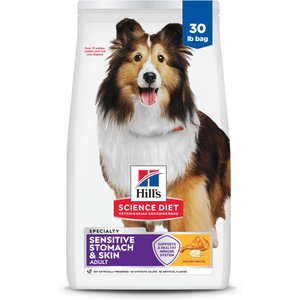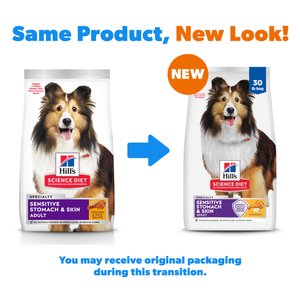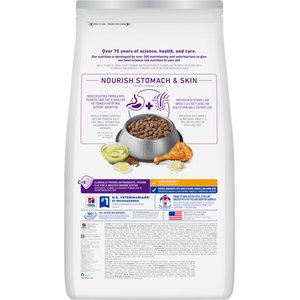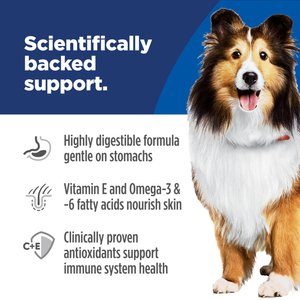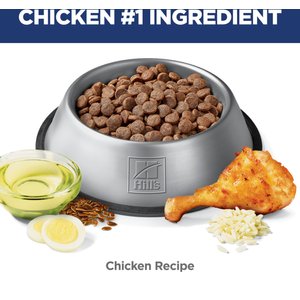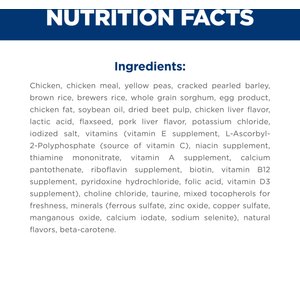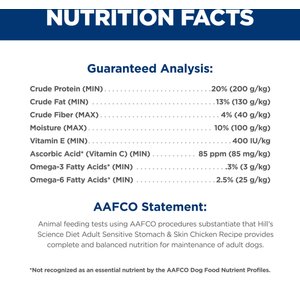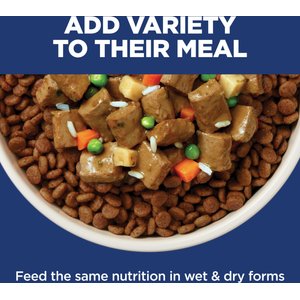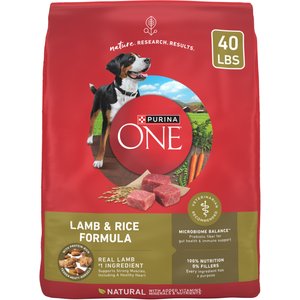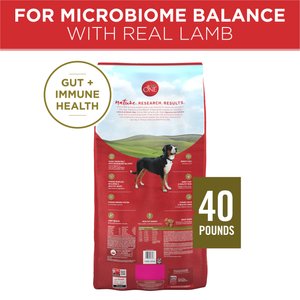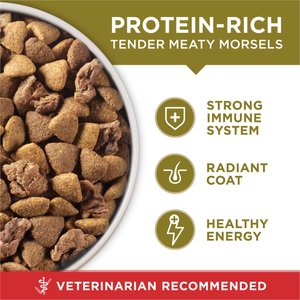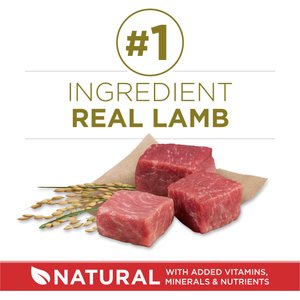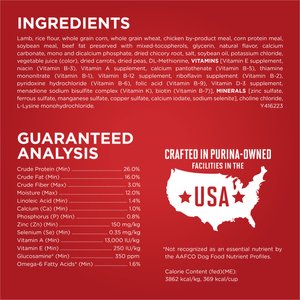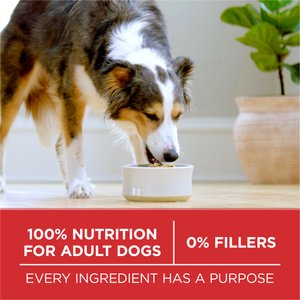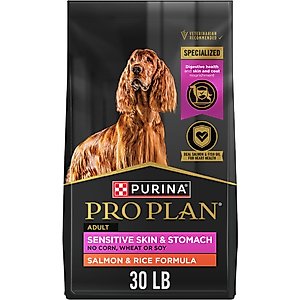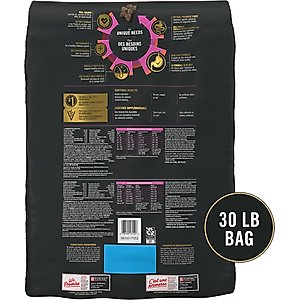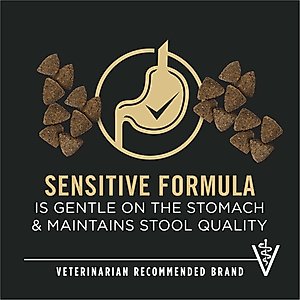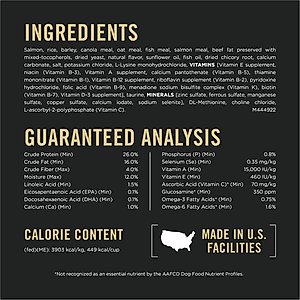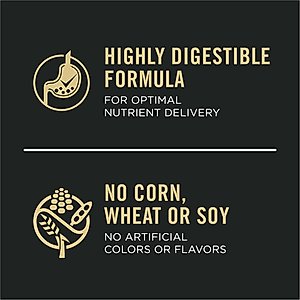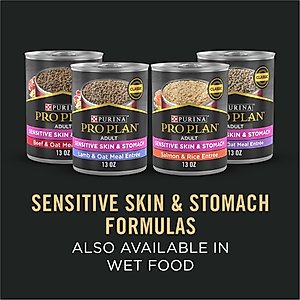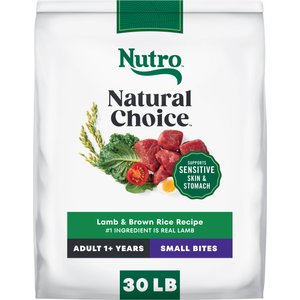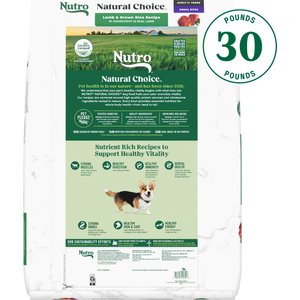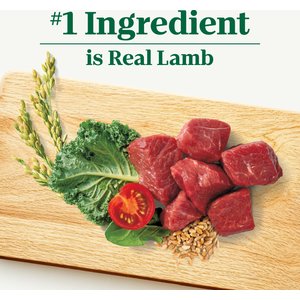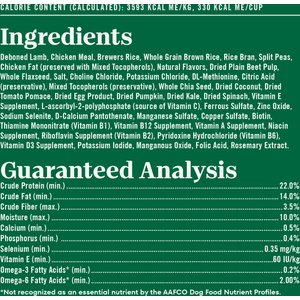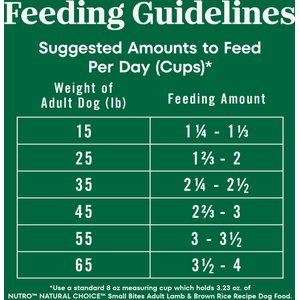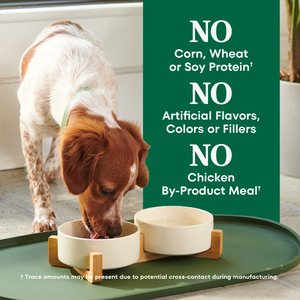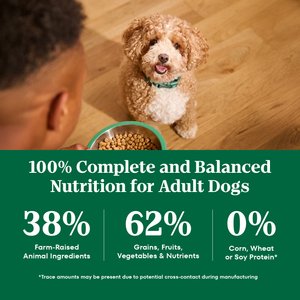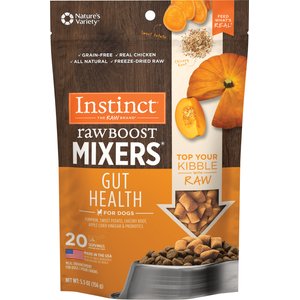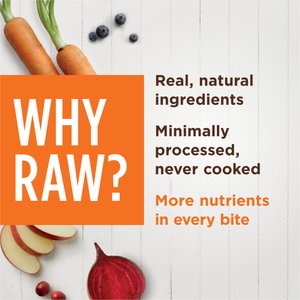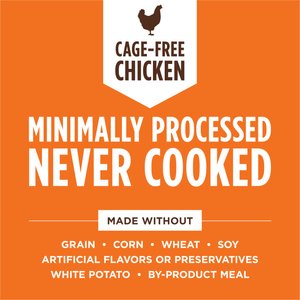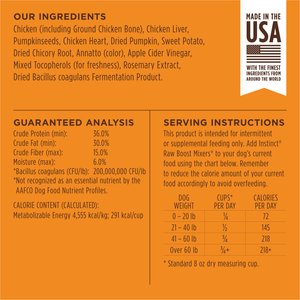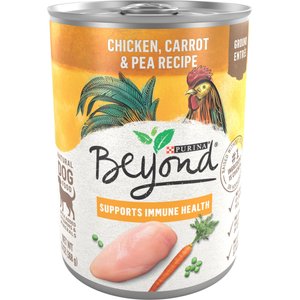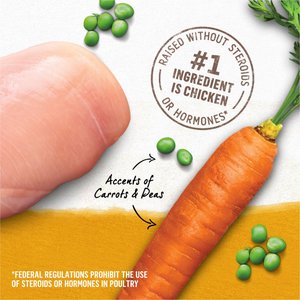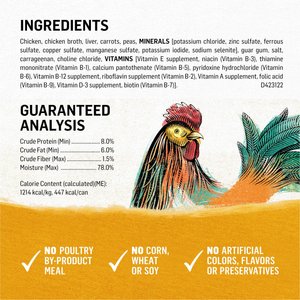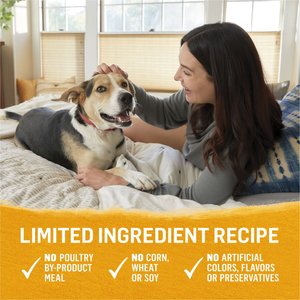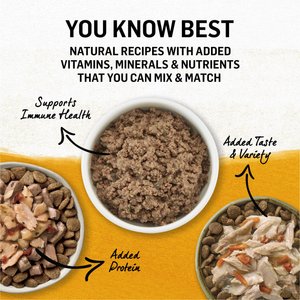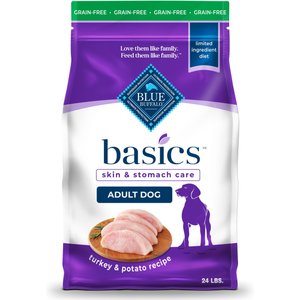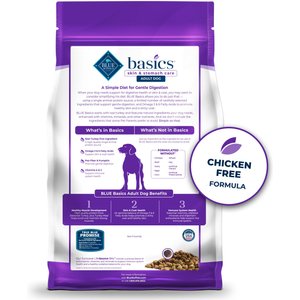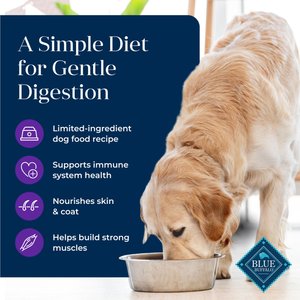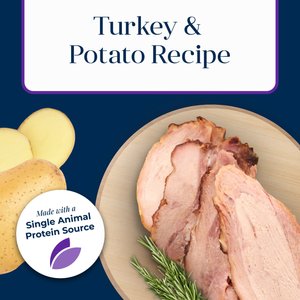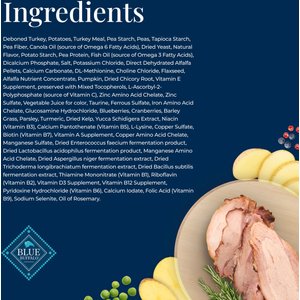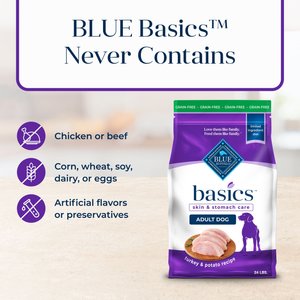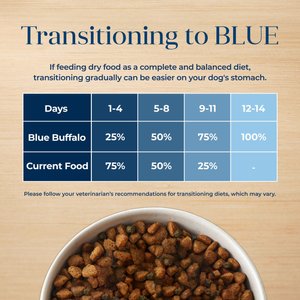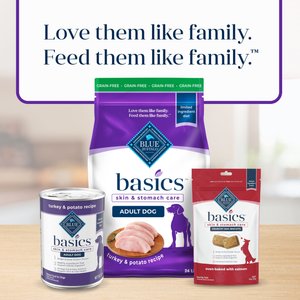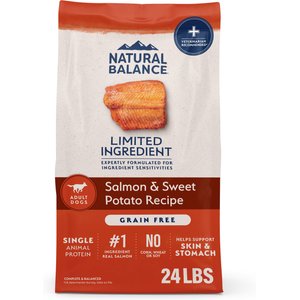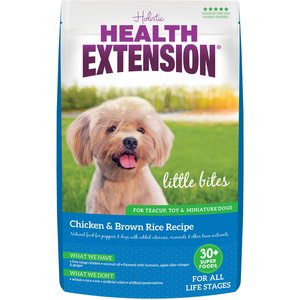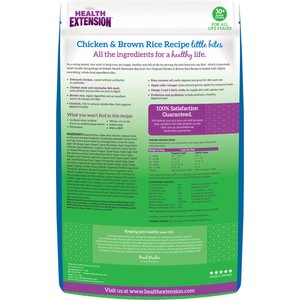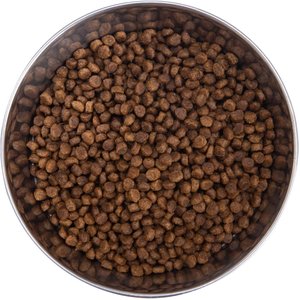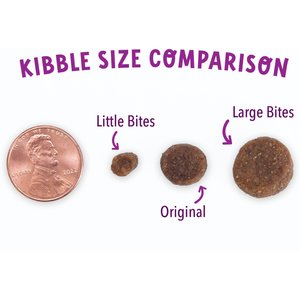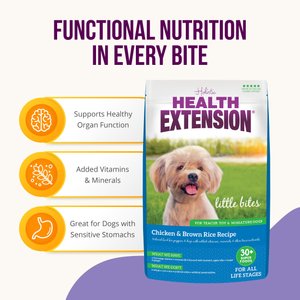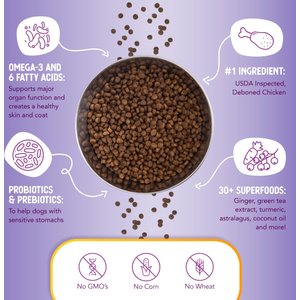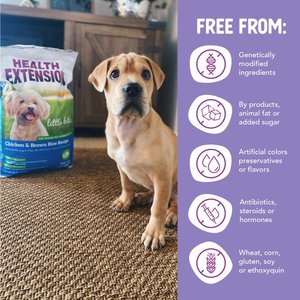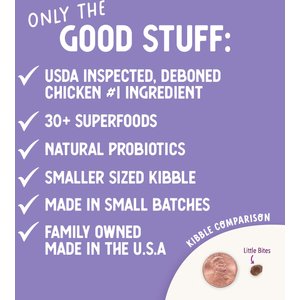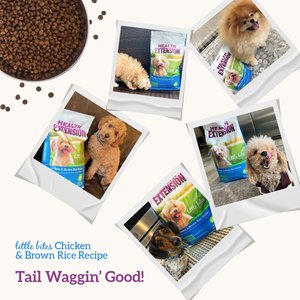The 10 Best Sensitive Stomach Dog Foods
Jump to the list
Hill's Science Diet Adult Sensitive Stomach & Sensitive Skin Chicken Recipe Dry Dog Food, 30-lb bag
$89.99Chewy Price
($3.00/lb)
Promo, New Customers Only: Spend $49+, Get $20 eGift Card
Our ratings
Limited Ingredient Formula
4.4/5
GreatDigestive Enzymes
4.5/5
GreatGrain-Free
4.5/5
GreatNovel Protein Sources
4.5/5
GreatPurina ONE Natural SmartBlend Lamb & Rice Formula Dry Dog Food, 40-lb bag
$59.00Chewy Price
($1.48/lb)
Promo, New Customers Only: Spend $49+, Get $20 eGift Card
Our ratings
Limited Ingredient Formula
4.4/5
GreatDigestive Enzymes
4.4/5
GreatGrain-Free
4.5/5
GreatNovel Protein Sources
4.5/5
GreatPurina Pro Plan Adult Sensitive Skin & Stomach Salmon & Rice Formula Dry Dog Food, 30-lb bag
$77.48Chewy Price
($2.59/lb)
Promo, New Customers Only: Spend $49+, Get $20 eGift Card
Our ratings
Limited Ingredient Formula
4.2/5
GreatDigestive Enzymes
4.3/5
GreatGrain-Free
4.3/5
GreatNovel Protein Sources
4.3/5
GreatGentle Giants Natural Non-GMO Dog & Puppy Chicken Dry Dog Food, 30-lb bag
$49.99Chewy Price
($1.67/lb)
Promo, New Customers Only: Spend $49+, Get $20 eGift Card
Our ratings
Limited Ingredient Formula
4.4/5
GreatDigestive Enzymes
4.5/5
GreatGrain-Free
4.5/5
GreatNovel Protein Sources
4.6/5
ExcellentNutro Natural Choice Adult Small Bites Lamb & Brown Rice Recipe Dry Dog Food, 30-lb bag
$79.98Chewy Price
($2.67/lb)
Promo, New Customers Only: Spend $49+, Get $20 eGift Card
Our ratings
Limited Ingredient Formula
4.4/5
GreatDigestive Enzymes
4.5/5
GreatGrain-Free
4.5/5
GreatNovel Protein Sources
4.5/5
GreatInstinct Raw Boost Mixers Gut Health Recipe Grain-Free Freeze-Dried Dog Food Topper, 5.5-oz bag
$15.19Chewy Price
($2.77/oz)
Promo, New Customers Only: Spend $49+, Get $20 eGift Card
Our ratings
Limited Ingredient Formula
4.5/5
GreatDigestive Enzymes
4.6/5
ExcellentGrain-Free
4.6/5
ExcellentNovel Protein Sources
4.7/5
ExcellentPurina Beyond Chicken, Carrot & Pea Recipe Ground Entrée Grain-Free Canned Dog Food, 13-oz, case of 12
$24.16Chewy Price
($0.16/oz)
Promo, New Customers Only: Spend $49+, Get $20 eGift Card
Our ratings
Limited Ingredient Formula
4.4/5
GreatDigestive Enzymes
4.5/5
GreatGrain-Free
4.4/5
GreatNovel Protein Sources
4.5/5
GreatBlue Buffalo Basics Skin & Stomach Care Adult Grain-Free Turkey & Potato Recipe Dry Dog Food, 24-lb bag
$69.58Chewy Price
($2.90/lb)
Promo, New Customers Only: Spend $49+, Get $20 eGift Card
Our ratings
Limited Ingredient Formula
4.2/5
GreatDigestive Enzymes
4.3/5
GreatGrain-Free
4.4/5
GreatNovel Protein Sources
4.3/5
GreatNatural Balance Limited Ingredient Grain-Free Salmon & Sweet Potato Recipe Dry Dog Food, 24-lb bag
$72.98Chewy Price
($3.05/lb)
Our ratings
Limited Ingredient Formula
4.2/5
GreatDigestive Enzymes
4.3/5
GreatGrain-Free
4.3/5
GreatNovel Protein Sources
4.3/5
GreatHealth Extension Little Bites Chicken & Brown Rice Recipe Dry Dog Food, 4-lb bag
$29.98Chewy Price
($7.50/lb)
Promo, New Customers Only: Spend $49+, Get $20 eGift Card
Our ratings
Limited Ingredient Formula
4.6/5
ExcellentDigestive Enzymes
4.6/5
ExcellentGrain-Free
4.6/5
ExcellentNovel Protein Sources
4.6/5
Excellent